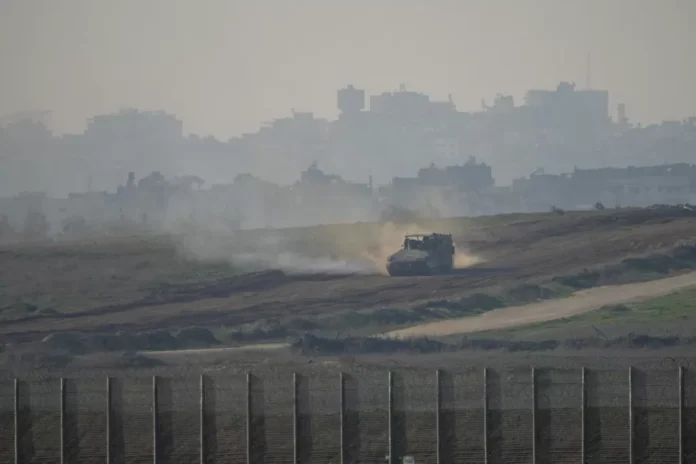The Israeli military buffer zone has recently doubled in size, causing great concern for the Palestinian people who are now squeezed into shrinking wedges of land. This development has raised many questions and sparked intense debate among political leaders and citizens alike.
The buffer zone, also known as the “no-go zone,” is a strip of land along the border between Israel and the Gaza Strip. It was initially established in 2005 as a security measure to prevent attacks from Palestinian militants. However, in recent weeks, the Israeli military has expanded the buffer zone, effectively annexing more Palestinian land.
This expansion has had a significant impact on the lives of Palestinians living in the area. Many have been forced to abandon their homes and livelihoods, as their land falls within the new buffer zone. This has caused a great deal of distress and uncertainty for these families, who have been left with no choice but to flee their homes.
The doubling of the buffer zone has also resulted in a severe restriction of movement for Palestinians living in the area. With their land now under Israeli control, they are unable to access their farms, schools, and other essential services. This has not only disrupted their daily lives but has also had a detrimental effect on their economy.
The expansion of the buffer zone has been met with widespread condemnation from the international community. The United Nations has expressed its concern over the displacement of Palestinian families and the violation of their human rights. The European Union has also called for an immediate halt to the expansion, stating that it undermines the prospects for a peaceful resolution to the Israeli-Palestinian conflict.
Despite the outcry from the international community, the Israeli government has defended its actions, stating that the expansion of the buffer zone is necessary for security reasons. They argue that the buffer zone serves as a deterrent against attacks from Palestinian militants and is crucial for the safety of Israeli citizens.
However, the reality is that the buffer zone has only further escalated tensions between Israel and Palestine. It has deepened the divide between the two sides and has made the prospect of a peaceful resolution even more challenging.
The expansion of the buffer zone has also raised concerns about the future of the Palestinian people. With their land shrinking and their movement restricted, they are facing an uncertain future. This development has only added to the already dire situation in the Gaza Strip, where the population is facing severe economic hardship and a lack of basic necessities.
It is essential for both Israel and Palestine to find a solution that respects the rights and needs of both sides. The expansion of the buffer zone is not the answer. It only serves to further entrench the conflict and cause more suffering for the Palestinian people.
It is time for both sides to come together and engage in meaningful dialogue to find a peaceful resolution. The international community must also play a crucial role in facilitating this process and putting an end to the expansion of the buffer zone.
In conclusion, the recent doubling of the Israeli military buffer zone has had a devastating impact on the lives of Palestinians living in the area. It has caused displacement, restricted movement, and further escalated tensions between Israel and Palestine. It is imperative that a peaceful resolution is reached, and the rights of both sides are respected. The expansion of the buffer zone must be stopped, and efforts must be made towards finding a lasting solution to the Israeli-Palestinian conflict.

